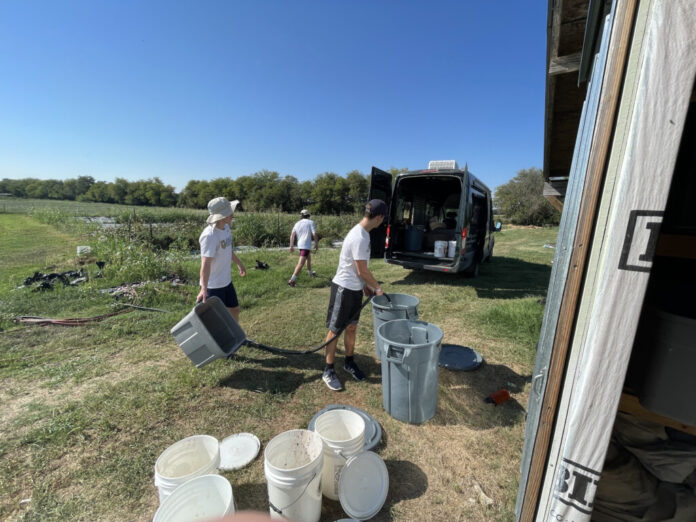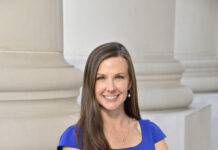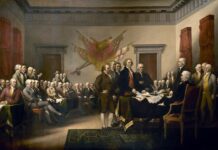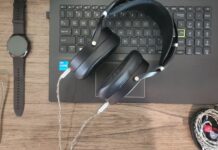It is a great privilege to be able to attend a school such as Jesuit, to have a roof over your head, to have food security and a meal on the table. However, as myself and other students learnt during the Waco Immersion Trip, on the 22nd through to the 26th of September, that this experience is not a universal one. Over 37 million Americans live under the poverty line, to put it in perspective that amounts to around ten percent of the population or 10 million more than the population of Texas. Even more severe is the global poverty rate. The UN’s Department of Economic Affairs and Statistics, states that a tenth of the world lives off less than $1.90 a day.
In Waco, the poverty rate is nearing 30 percent, over double the national average of 13-14 percent. The city has struggled with rising homelessness and poverty rates since the 1950’s, when the diversion of major railroad centers and natural disasters struck the city. The Waco tornado of 1953 resulted in a major departure following the devastation of the city’s businesses and homes, those who could not afford to repair or move away were left in the wake of destruction. This sort of extreme poverty and homelessness is a foreign and unknown experience for many of our students, and one of the main reasons we attending this trip.
Attending this trip with students were Dr. Reimer, Mr. Perry, Mr. O’Malley, and Alumni Service Corps members Mr. Allison and Mr. Lee. The weekend began with students attending service opportunities, learning about the Waco community, and educating themselves on what people are doing to rectify this economic injustice. Half of the students went to the World Hunger Relief Farm, while the others visited community facilities such as the Meyer Center.
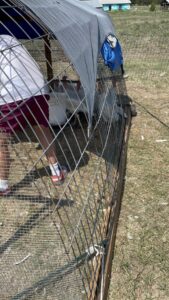
Service
The World Hunger Relief Farm focuses on educating students and adults on the impact of nutrition and sustainable practices. Their mission statement is that the World Hunger Relief Farm is a Christian organization committed to the alleviation of food insecurity and hunger through sustainable agriculture, transformative education, and community partnerships. Our Jesuit students got the opportunity to commit to this mission and learn how we can contribute to alleviating this profound issue of food insecurity. We learned about safe and sustainable agricultural practices, and how integral nutritional food is to our health. Students spent the day at the farm lending a hand to the staff with tasks such as weeding, composting, and feeding some of the animals.
Our time at the farm, despite the immense heat and laborious work, was a highly enjoyable and educational experience. We learned about programs offered by the WHRF to alleviate the impacts of food shortages and insecurity in the area. These programs were implemented with the goal of improving the health and sustainability of the community and included the Produce Prescription Program, which is aimed at providing healthy food and nutrition for those struggling with illnesses or ailments that relate to their diet. Other programs such as their collaboration with the Family Health Center, strive to provide equitable access to clean and healthy foods.
In reflection of his service at the Relief Farm, Christian Carr ’25 expressed how he “learned a lot from working at the farm that [he] wouldn’t normally get to see, and it gave [him] more empathy towards those working in this tiring labor.”
While Dr. Reimer and his students were at the farm, Mr. Perry and his group of boys learned about the community within Waco. The students visited various centers in the area that were aiding the homeless, by providing assistance and empowerment. This includes the Meyer Center, a community clinic providing the disadvantaged and homeless with medical services and support. These services are integral to the area, as many individuals either do not have access to or cannot afford medicine or emergency care.
The students also had the opportunity to meet some local children who are experiencing poverty, Judd Katz ’25 remarked how “he thinks that the experience at the family center was really eye-opening, mainly because I can relate to these kids who are not much younger than we are and really emphasize with and for them.”
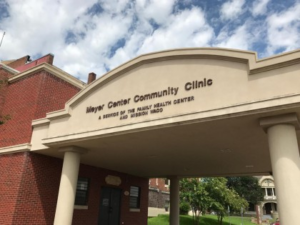
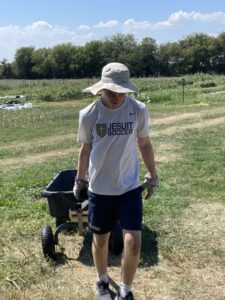
Poverty Simulation
On the night of the 23rd, we began the poverty simulation with Mission Waco. The simulation immersed us into an area outside of our comfort zones and forced us to make do with what we could find or a scarce amount of items that we brought with us. The program is aimed at educating students, adults, and families on the root causes and struggles of homelessness, and how we can work to resolve this crisis. We were also taught about the different ways poverty shows itself and how poverty is both an issue nearby in Waco, but also an epidemic across the world. We spent three days and two nights in the simulation, our activities focused on showcasing the daily life and struggles associated with homelessness and providing us with an insight to the experiences of these individuals who are struggling with homelessness.
I believe that despite the short length, this opportunity to experience life similar to that of extreme poverty and homelessness was extremely eye-opening. Throughout the simulation, we learned about the difficulty of tasks and activities we take for granted, such as food security or meal guarantee. We were forced to make decisions, and compromises on what we would spend our limited resources on, and what we would go without. Walking three miles without water and withstanding the heat, we spent four hours collecting and carrying twenty-five pounds of aluminum cans, which we recycled for eleven dollars.
A Learning Experience
The service experience opened up and expanded the perspective of not just the students on the trip, but also for the staff partaking in the immersion with us. The staff members accompanied us throughout the entirety of the immersion, learning about the struggle of homelessness and the circumstances surrounding it. Alumni Service Corps member Mr Allison partook in the experience with us, facing the uncertainty of homelessness and unaware of the twists, turns and challenges we encountered. While Dr Riemer has been on this trip over 16 times, this was a fresh experience and new experience for Mr Allison.
Mr Allison remarked how he “learn[t] a lot from partaking in the trip, this was a trip I didn’t take as a Sophomore, so it was a new experience that I really appreciate the ability to take go on now.”
The trip to Waco served the purpose of both educating me on something I was relatively uninformed about and challenging me to spend some time in someone else’s shoes, both figuratively and literally. The simulation put us in situations that were uncomfortable, outside of our bubble, and even somewhat confrontational. I was challenged by the trip, challenged by the lack of my normal support network of family and friends, the inability to pay for and have food readily available, and the uncertainty of what lay ahead of me. However, in the face of these challenges and putting myself outside my comfort zone I learned and managed to truly empathize with those struggling with homelessness and severe poverty. In reflection on the trip, we defined poverty as an absence of choice, a lack of support and a feeling of isolation or feeling ostracized from the rest of society. My time in Waco and on the Poverty Immersion was insightful and provided a new interpretation for me on the circumstances and issues regarding poverty in Texas, and in our communities. Thus, I’d highly recommend any student who has the opportunity to go on this trip to take the chance and to put yourself outside of your comfort zone.
Stay tuned to the Roundup for more service reflections.


